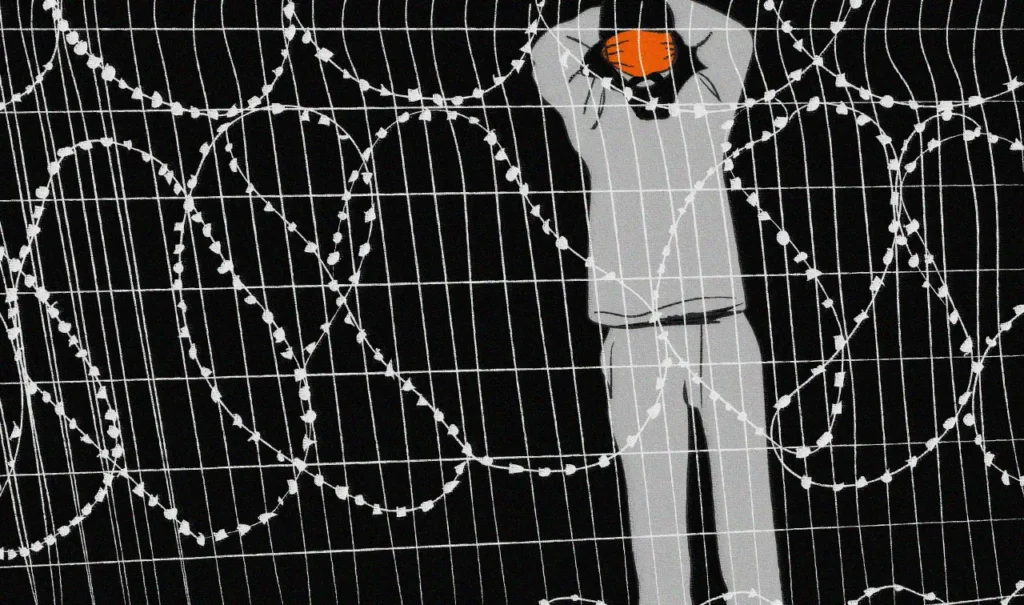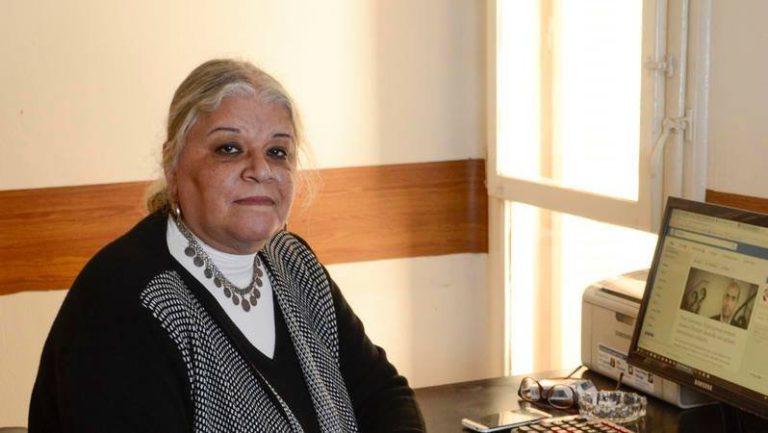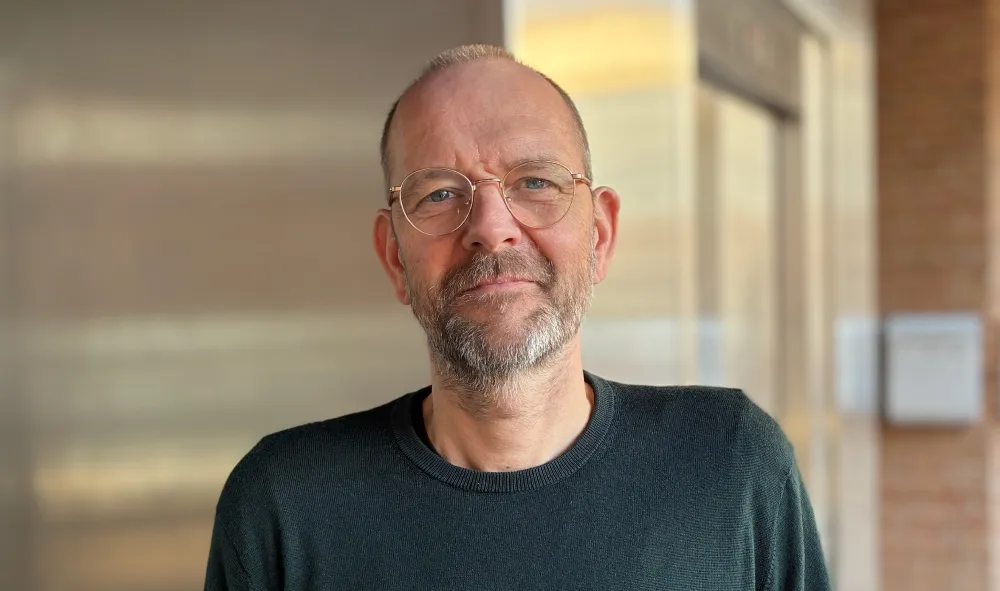What has been reported about the military detention camp Sde Teiman?
After 7th October, Israeli authorities set up several military detention facilities across Israel and the Occupied Palestinian Territories, including one at Sde Teiman, where arrested Gazans are detained. The detention site reportedly held up to 4,000 people and has been dubbed the ‘Israeli Guantánamo’, but media coverage based on whistleblower and victims’ testimony and UN reports details conditions that may surpass those of Guantanamo Bay with mounting allegations of torture and ill-treatment. Recently published testimonies by soldiers who served in Sde Teiman paint a picture of a site where ill-treatment and torture are systematic.
The Sde Teiman detention site includes a clinic designated for treating all detained Gazans following the Israeli Ministry of Health’s directive to stop treating detained Gazans in community hospitals. In April 2024, a Sde Teiman physician sent a letter to Israel’s ministers of defense and health and the attorney general stating that the facility’s operations »do not comply with a single section among those dealing with health in the Incarceration of Unlawful Combatants Law«.
Israeli human rights organizations petitioned Israel’s High Court to close the site, a call echoed by the Israeli Attorney General and more than 1,500 health workers from around the world. While some 140 Palestinians have been transferred from Sde Teiman to Israeli prisons, the site continues to function, albeit with fewer people detained. However, reports indicate that conditions in these Israeli prisons are also dire, suggesting that the ill-treatment has not ended but has merely shifted locations.
What do we know about the specific abuse and torture methods reported at Sde Teiman?
A broad range of torture methods have been reported both by staff and detainees released from Sde Teiman. The violence is described as a daily practice. Among the reported physical methods are beatings, including punches, kicks and blows using metal batons and gun butts, as well as stun grenades and Tasers. Some beatings targeted injured and sensitive body parts. For example, one person reported that Israeli soldiers hit his injured leg with batons and guns and stepped on his injured leg. The detainees also described positional torture, where the victim is forced to remain in a fixed position for an extended period, for example, kneeling for five hours or risking violent punishment. Handcuffing for extended periods of time and handcuffing so tightly that it causes injury or even results in amputation has also been described. A Sde Teiman doctor reported that amputations have become a »routine« procedure due to excessively tight handcuffing. Secondly, the detainees described multiple forms of psychological torture and ill-treatment. This includes sensory deprivation by blindfolding, deprivation of sleep, food and water, either by complete or partial denial. This not only applied to people detained at Sde Teiman but also to those who fall sick and receive treatment in the facility’s clinic. Humiliations and threats in many forms have been reported. Sexual torture ranging from forced nudity to rape with severe physical consequences, has also been documented in Sde Teiman according to an ongoing investigation of Israeli soldiers that garnered media attention.
As for the Sde Teiman clinic, in his letter to Israeli officials, the abovementioned physician wrote that all patients are restrained by their four limbs and blindfolded at all times, including when receiving medical treatment. Since their movement is so severely restricted, they must use diapers. The field clinic reportedly offers limited treatment options and operates under a directive by the Ministry of Health, which does not refer to any ethical standards for documentation and reporting of abuse and torture, contrary to the international standards for detention (Mandela Rule 34).
Another doctor also reported from Sde Teiman clinic about the limited treatment options available, for example patients who ought to have been in intensive care after treatment for gunshot wounds or severe infections are not offered such care. As a doctor, he was not even able to speak with his patients because they were not allowed to talk.
And what are some of the health consequences of these methods?
On an individual level, the consequences of torture depend on the torture methods used. Each method has its characteristics. For example, a person will experience pain in those body parts that have been beaten, muscle pain after having been forced to stay in the same position for a long period of time (positional torture) and broken bones. Emaciation and dehydration will follow if a person is deprived of food and water, respectively. Sexually transmitted diseases may be experienced following sexual torture. In the case of Sde Teiman, one person has reportedly experienced severe injury to the anus, ruptured bowel, and even lung damage and broken ribs following a violent rape combined with other torture methods.
Some torture methods attack the mind rather than the body. Such methods have their own characteristics, e.g., confusion and impaired cognitive functioning following sleep deprivation, fear and anxiety after threats and shame following humiliation. In the acute stage, this may also lead to changes in how physical torture is experienced because the pain perception is altered when a person is sleep-deprived.
In the long term, both physical and psychological torture may have consequences, the most well-known being anxiety, depression, and PTSD.
For more information about the individual torture methods and their consequences, DIGNITY has produced a series of factsheets on individual torture methods.
Torture also has an impact at the societal level. The persons who have been subjected to torture may require long-term medical and psychological treatment, and they may be unable to work and carry out ordinary day-to-day tasks, thus impacting their families as well. Many armed conflicts around the world have shown how it takes years and even decades to heal the fear, hatred and lack of trust that may result from community members having been tortured and killed. The widespread use of torture can also lead to collective trauma, where entire communities experience long-term psychological harm. When torture is not adequately addressed or punished, it can create a culture of impunity, where perpetrators feel emboldened to commit further abuses without fear of consequences. Ultimately, torture can be a significant barrier to peace processes, as it breeds mistrust and hatred between conflicting parties.
One chilling example of torture’s societal consequences is provided by the doctor who told about his work at Sde Teiman clinic. He talks about dehumanization and how as a doctor he stopped relating to his patients as real human beings. He goes on to say “And what’s most shocking is that when I was there, I have to admit… I wasn’t even sad. It all felt so surrealistic to me, just a quarter of an hour’s drive from Be’er Sheva… It disturbs me that it didn’t bother me, that somehow I looked at things but didn’t see them, or somehow… felt fine about them.”
What steps are being taken to investigate the allegations of torture and ill–treatment at Sde Teiman?
Despite Israel’s recent pledge to investigate allegations of torture at Sde Teiman, little tangible progress has been made. While, some investigations have been initiated, none have led to convictions. The United Nations has recently called for greater transparency and accountability in Israel’s detention practices, but these calls have largely gone unheeded.
In May 2024, the Israeli government announced an investigation into the deaths of Palestinian detainees arrested in Gaza, coupled with a plan to phase out the use of Sde Teiman. This move followed alarming reports from major news outlets, such as CNN, The New York Times, and Haaretz. The decision to investigate and eventually close Sde Teiman was also influenced by proceedings initiated before Israel’s High Court.
In an incident this August that has garnered worldwide attention, ten Israeli soldiers were arrested on charges of causing bodily harm, abuse, and the sodomization of a Palestinian detainee at Sde Teiman.
The arrest of these soldiers has led to significant unrest in the country. Protests have erupted, with several high-profile individuals, including members of Parliament, forcibly entering Sde Teiman and the detention center where the arrested soldiers were being held. This act of defiance against the legal process has further inflamed tensions, leading to a highly charged debate within the Knesset, over the actions taken by the soldiers, with some even justifying the rape of detainees as legitimate.
To date, among the ten soldiers arrested, half have already been released and the other half have been placed on house arrest. Proceedings are still ongoing.
The failure to shut down the camp and address the root causes of the abuse is indicative of a broader unwillingness to confront systemic issues within Israeli detention practices. Allegations of torture by Israeli forces and authorities is not a new phenomenon and has been extensively documented over many years. Despite overwhelming evidence and numerous reports, Israel has consistently denied the use of torture against Palestinians. Between 2001 and 2022, over 1,450 complaints of torture have been filed against the Israeli Security Agency, yet only three have led to criminal investigations, none of which resulted in indictments.
How do the reported abuses at Sde Teiman connect to existing cases at the International Criminal Court (ICC) or the International Court of Justice (ICJ), and what legal consequences could Israel face from these international bodies?
The reported abuses at Sde Teiman could potentially connect to existing cases at the ICC or the ICJ in several ways.
The ICC has opened an investigation into alleged crimes committed in the Palestinian territories, including actions by both Israeli forces and Palestinian armed groups. The reported abuses at Sde Teiman, particularly the torture and sexual violence inflicted on detainees, fall within the scope of this investigation. If evidence emerges that high-ranking Israeli officials or military commanders were involved in these alleged crimes – e.g., by committing, ordering, aiding and abetting, or failing to take necessary and reasonable measures to prevent or repress them – they could be held criminally accountable by the ICC.
On 20 May 2024, ICC Prosecutor Karim Khan took a significant step by applying for arrest warrants against Israeli Prime Minister Benjamin Netanyahu and Defense Minister Yoav Gallant for crimes against humanity and war crimes. Should evidence from Sde Teiman indicate their involvement in the documented abuses, the ICC Prosecutor could potentially expand the charges to include these specific incidents.
Furthermore, evidence of torture and other forms of ill-treatment at Sde Teiman could play a crucial role in the genocide case currently before the ICJ. While torture is not explicitly listed as an act of genocide, it can be categorized under the act of »causing serious bodily or mental harm«, which is included in the Genocide Convention. The conditions and acts of torture inflicted upon detainees at Sde Teiman could therefore be interpreted as causing serious harm.
To legally establish genocide, it is necessary to demonstrate that these acts were committed with the specific intent to destroy, in whole or in part, the Palestinian group. In a report titled ‘Anatomy of a Genocide,’ dated 25 March 2024, the UN Special Rapporteur on the situation of human rights in the Palestinian territories occupied since 1967, Francesca Albanese, already concluded that the systematic acts of torture, alongside other forms of violence, amounted to genocide. We have yet to see how the ICJ will address the issue.
The abuses at Sde Teiman could have far-reaching legal consequences for Israel, both at the ICC and ICJ, potentially leading to expanded charges against Israeli officials and further complicating Israel’s position in the international community.
What are the immediate steps that need to be taken now?
DIGNITY urgently calls for an independent, impartial, prompt, and effective investigation into all complaints and suspicions of torture and other inhumane treatment in Sde Teiman and other Israeli military camps and prisons. Those responsible must be held accountable, either nationally or internationally.
We urge Israel to adhere to international legal standards in its handling of detainees and to immediately end the torture and ill-treatment of Palestinians in their custody.
We also call upon States and the EU to put pressure on the Israeli government to grant the International Committee of the Red Cross (ICRC) unrestricted access to all places where Palestinians are detained.
Israel should accede to the Optional Protocol to the UN Convention Against Torture, as a matter of priority, and allow independent national and international bodies to conduct monitoring visits to places where people are deprived of their liberty, including Palestinians, with the aim of preventing torture (and other inhuman treatment).
Nothing can justify torture—neither a state of war nor any other public emergency. The prohibition against torture is universal and absolute.





